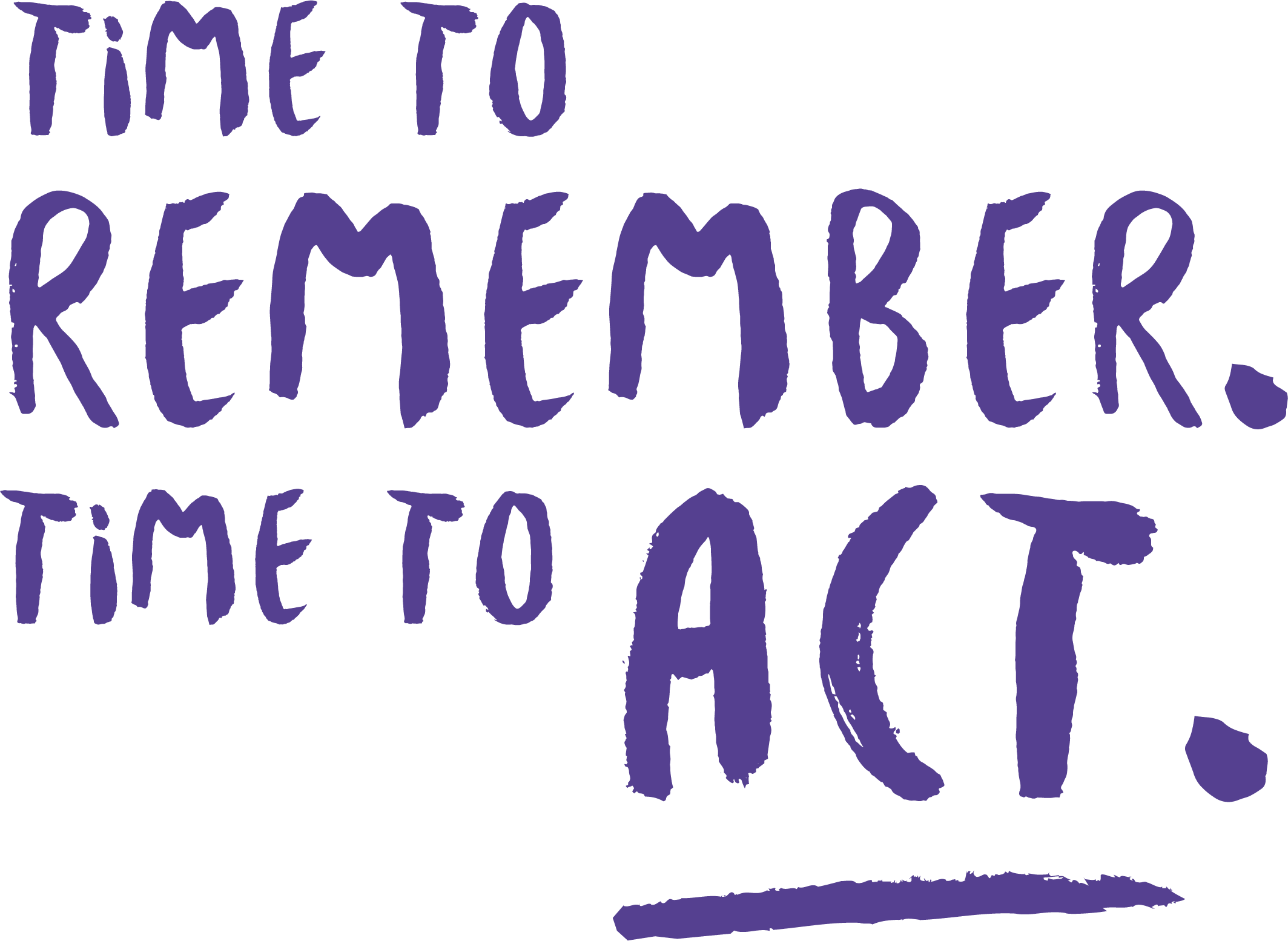IOAD: Practicing Grief and Solidarity

Words and reflections by Heather Hobbs
International Overdose Awareness Day (IOAD) is held worldwide each August 31. Early in August, I become aware of a sinking feeling in my stomach, thinking of how increasingly difficult it has been for me to show up for this day each year. Many of us are exhausted, heart-broken, angry, numb. Showing up to honour those we’ve lost is important to me but I also feel a strong pull to grieve when and how I need to versus when the calendar flips over to the designated day. So many of us are acutely aware, every day, of how many human beings have been taken from us all by deadly drug policy. As Toronto harm reduction activists first started saying in 2017, We Grieve Thousands.
Some of the impacts of organizing and working in the field of harm reduction have led me to make recent changes that have been difficult. Kind co-conspirators have offered soft landing pads where I’ve been able to slowly explore related issues through different lenses. I am grateful to maintain threads of connection while also taking space and time away from more intensive work. Most of the last 20 years I have spent working to increase and improve access to spaces and supports that uplift and affirm the lives of people who use drugs, particularly those who are the target of drug war capitalism. This has meant predominantly working with people suffering the systemic violence of poverty, criminalization, and public disdain for their survival use of unregulated drugs. Lately, I’ve been looking at drug policy and harm reduction issues through the lenses of cannabis as medicine and the pleasurable use of drugs in dance and party culture.
Prohibition reinforces a false dichotomy between ‘good’ drugs and ‘bad,’ between ‘recreational drug users’ seen to be deserving of legalization efforts, and ‘street drug users’ seen to be deserving of warehousing and forced treatment. Writer, M.L. Lanzillotta, recently called for solidarity among drug users and the dismantling of the prohibitionist mindset that actively reinforces power structures of class, race, and colonization, and creates division and stigma within a harm reduction movement that must be for the liberation of all drug users.
Solidarity is the air we must breathe. With emboldened fascism impacting drug policy and practice in Canada, closure of death prevention services, social media and political attacks on harm reduction, and limited/diminishing access to prescribed safe supply are all significantly exacerbating risk of harm and death. Solidarity is a requirement for fighting back against the policing of bodily autonomy, especially for those of us with unearned privileges that afford our relative immunity from necropolitics. So many of us continue to use unregulated drugs and are subject to significantly reduced risk, even in the context of prohibition. We have money to buy from safer sources, we are not reliant on substances solely for pain relief and survival, we can get our drugs checked before using them, we can dose and use in safe spaces and out of the public eye, we may not be racialized and therefore criminalized, we have places to sleep and recover and replenish our bodies, we have the privilege and anticipation of fun, pleasure, healing, exploration. Widening my focus from working with folks who are just trying to survive, to the provision of drug checking for folks, many of whom have the privilege of a more celebratory approach to drug use, has been a strange sort of guilty pleasure. Those with privilege are not immune to the harms of unregulated, toxic drugs and must remain vigilant, but we have so many more means to keep us safer. The possibility of despair is always around the corner; we continue to lose people we care about. Prohibition hurts us all.
Fighting the drug war can also be incredibly isolating. How can we continue to show up in solidarity with one another, and for ourselves, when we become depleted by the relentless violence, trauma and despair? How can I show up to another International Overdose Awareness Day event when all I want to do is give in to the exhaustion? Maybe I won’t show up this time, to this particular event, and that has to be ok. We have to value a diversity of ways to show up for ourselves and our communities including rest, practicing joy, engaging from behind the scenes. But if continuing to show up remains part of who you are, as it is for every harm reductionist I’ve ever met, we have to have practices that sustain us.
There has been a lot of talk about the new book, Let This Radicalize You by Kelly Hayes and Mariame Kaba, and for good reason. Hayes and Kaba refer to the book as a resource for newer activists and organizers but after only reading the first chapter, it already felt like a source of grounding support that I expect to repeatedly return to. Hayes and Kaba talk about how the repetition of terrible facts is not helping us win our campaign or movement goals. When governments release monthly overdose numbers, or health authorities post ‘bad batch’ overdose advisories, I know what the authors mean. I’m not downplaying the necessary documentation that helps to build a bedrock of evidence, but repeating terrible facts is not driving people to action, particularly those people with power. Hayes and Kaba remind us that what inspires people to engage and to act is imagination, creativity and stories that resonate. Moms Stop the Harm have been effective at welcoming people into community and taking collective action, fuelled by the very public sharing of their grief and stories that resonate. Drug checking results are important for tracking trends, but initiatives like teaching days at Substance invite people in to build skills, to engage in conversation about the diverse means and motivations for drug use, and to foster mutual aid by sharing information and support. When we engage with one another through grief, skills building, and everyday conversations, we foster necessary points of connection that can fuel action toward shared visions.
Lately I’ve needed to step back and to take stock of how crisis work has impacted me. It’s been difficult to resist isolation and remain in connection with my community, and helpful to be reminded of the concept of ‘Active Hope’ from activists, Joanna Macy and Chris Johnstone. The authors recently published a revised version of their 2012 book of the same name, and describe Active Hope as a three-step practice in this short passage quoted in the Hayes and Kaba book:
“First, we take a clear view of reality; second, we identify what we hope for in terms of the direction we'd like things to move in or the values we'd like to see expressed; and third, we take steps to move ourselves or our situation in that direction. Since Active Hope doesn't require our optimism, we can apply it even in areas where we feel hopeless. The guiding impetus is intention; we choose what we aim to bring about, act for, or express. Rather than weighing our chances and proceeding only when we feel hopeful, we focus on our intention and let it be our guide” (p. 176)”
Hayes and Kaba further reassure us that we can still take steps in times of rest and recovery, as “We need only decide who we are choosing to be and how we are choosing to function in relation to the outcome we desire…”
It’s reassuring that when hopefulness and optimism eludes me, I can still choose to take small, intentional steps. When I’m activated or angry, I can use that powerful energy with intentionality, rather than react in ways that cause isolation. I can choose to give myself grace to start over each day. These practices help to resist abandonment of work that is both painful and important; this feels to me in alignment with harm reduction. Especially in more difficult times, I can remind myself that taking small steps in the direction of my intentions is part of the collective momentum that this world needs. This is both comforting and strategic. Hayes and Kaba remind me that tending to my grief, and practicing Active Hope even when feeling hopeless, are ways to reject indifference and are necessary to sustain our collective action.
